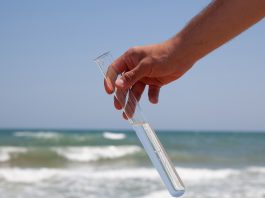SINTEF has invested in a new start-up to assess the impact of companies’ corporate emissions on their carbon footprints.
As part of its climate change strategy, the EU is preparing a new directive to regulate corporate sustainability reporting. Furthermore, the Norwegian government has determined that all companies in the state portfolio now have a duty to report annually on their direct and indirect corporate emissions.
This will require skills development within an entirely new discipline, involving an approach to climate accounting that encompasses the entire value chain by which an end-product is produced, including across national boundaries.
“Providing assistance in connection with sustainability reporting is in the process of becoming an entirely new business in itself, and Norway has great opportunities to make a contribution,” said Senior Research Scientist, Ulf Johansen.
Assisting businesses with sustainability reporting
In order to help businesses understand how they produce corporate emissions, Johansen and his team founded MoreScope with the support of SINTEF. The company will assist businesses with their climate and sustainability reporting.
Johansen explained: “No chain is stronger, or indeed greener, than its weakest link. A horde of contractors and sub-suppliers all contribute to any given product’s climate footprint. But only very few companies have the skills in-house to calculate the size of these various contributions. It is here that MoreScope sees an opportunity.”
MoreScope will make use of economic models and environmental datasets that have taken SINTEF and their partners years to develop. “While SINTEF has employed an applied user perspective in this field, NTNU has been moving the research front forward. MoreScope has its roots in this collective know-how,” Johansen stated.
He continued: “Thanks to the research carried out here in Trondheim, the quantification of the climate-related and sustainability impacts of activities throughout our global value chains is becoming something of a Norwegian speciality.”
The core of the economic models is based on so-called input-output analysis. This is a well-known approach that, in various ways, quantifies all exchange of goods and services between different countries and commercial sectors, while also determining the impact of corporate emissions caused by these exchanges.
According to Johansen, a key factor in the establishment of MoreScope is that it is no longer acceptable for a company to make undocumented claims about the sustainability associated with a given product.
“Such claims have to be firmly based in data and a methodology that is testable and transparent,” he said. “Our task is to make such tools accessible to companies across all corporate sectors. We’re immodest enough to claim that we believe we can supply new insights into corporate emissions.”
Sustainability reporting is a growing global market
Initially, MoreScope will be promoted to Norwegian clients, but the team have recognised its potential across the globe. “We strongly believe that the know-how we offer will also be of interest to a growing global market in sustainability reporting,” Johansen said.
Start-up investors SINTEF Venture VI co-own the corporate emission-detecting technology. SINTEF TTO, which is SINTEF’s own company dedicated to the commercialisation of research results, is working actively to recruit more professional investors.
“We’re considering a number of collaborative constellations with other enterprises in the same segment”, said Asle Jostein Hovda, Investment Director at SINTEF TTO. “These will enable us to strengthen our position in the market. We expect to be hearing a lot of exciting news from MoreScope in the next six months.”





